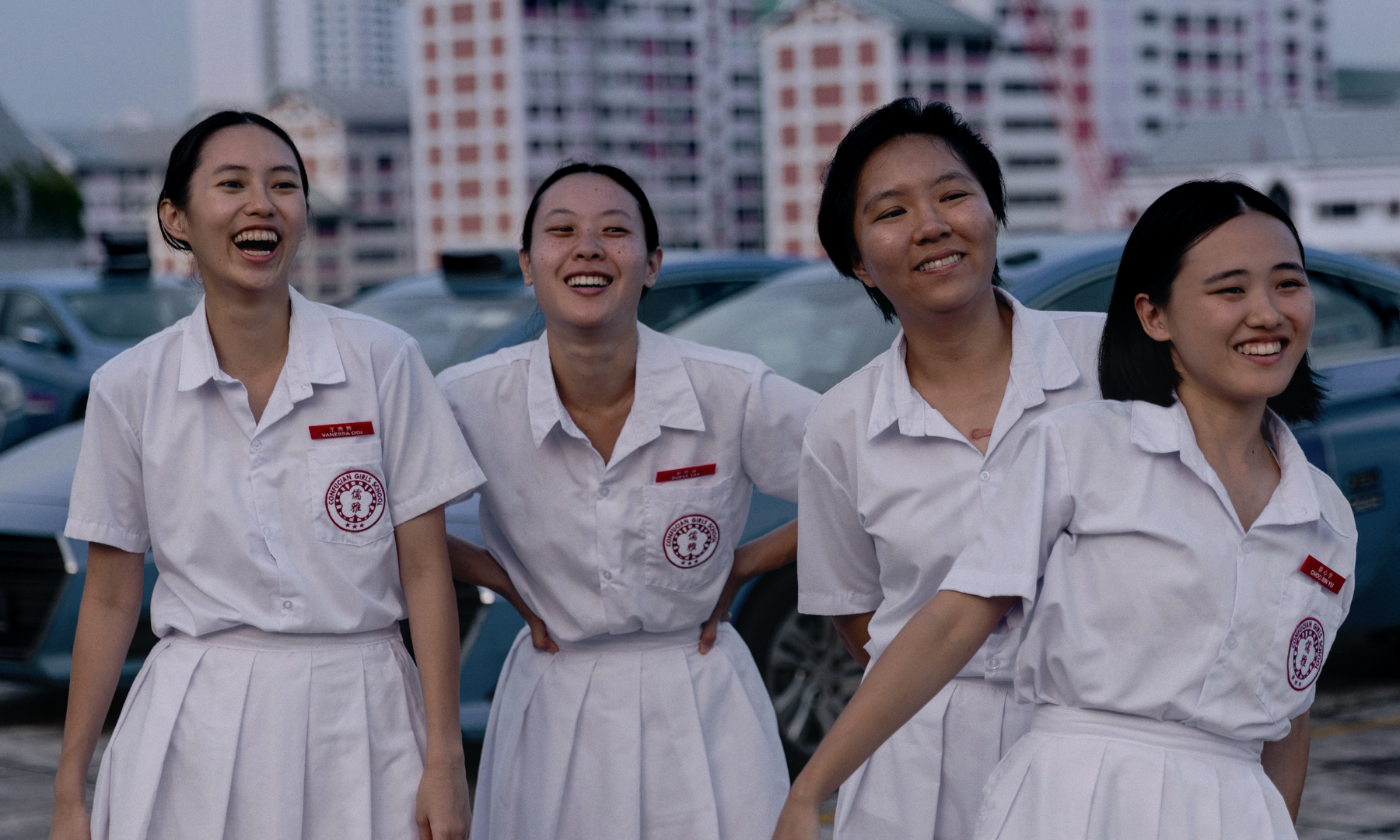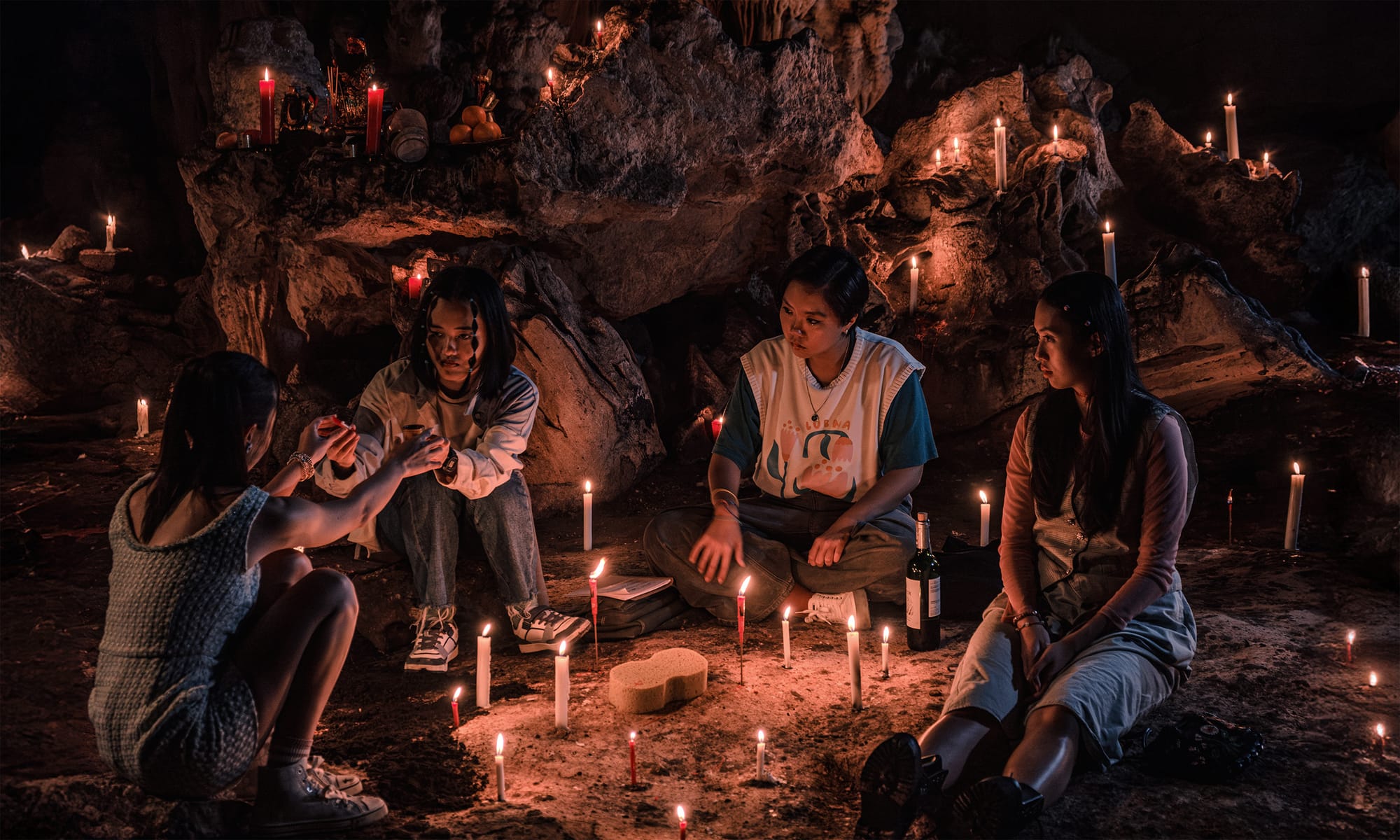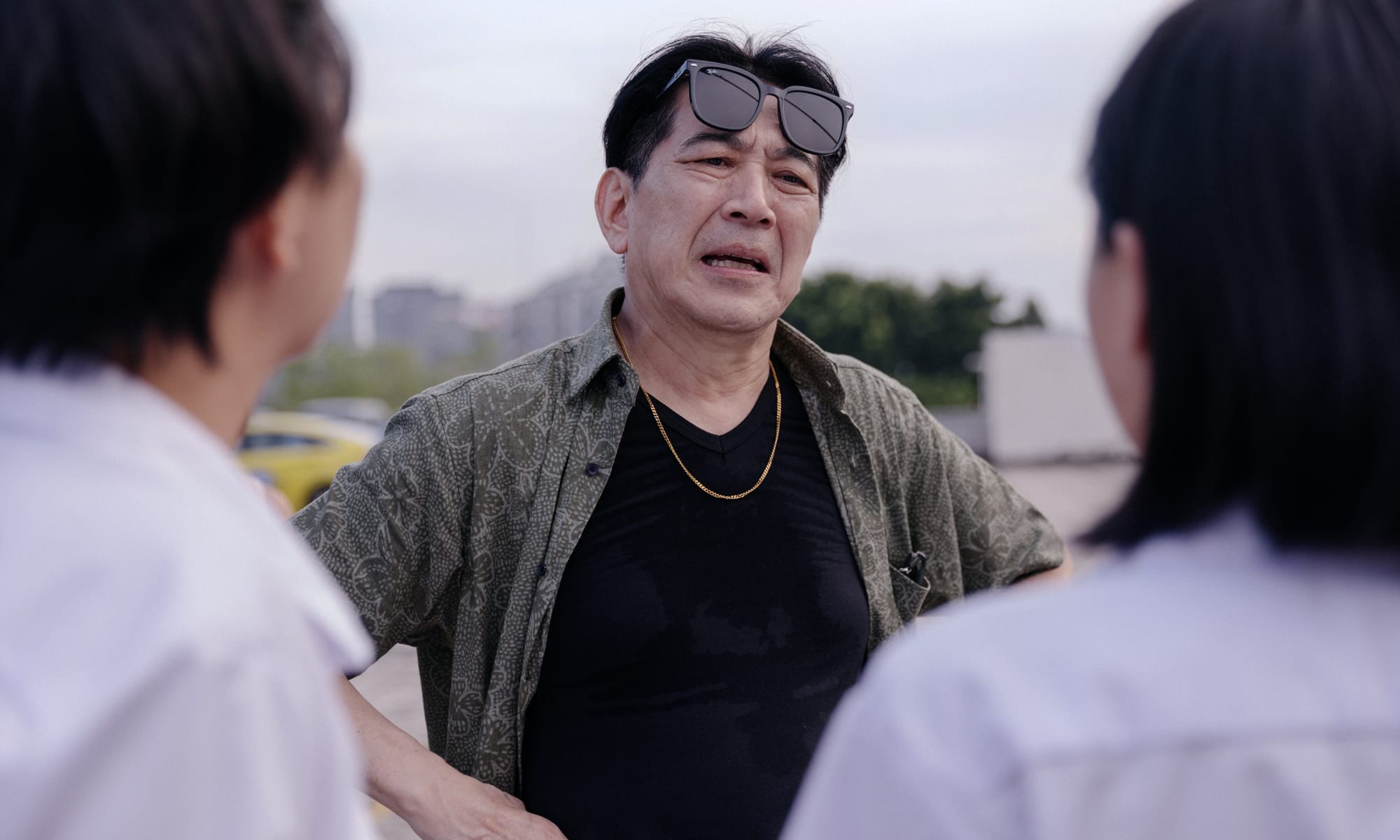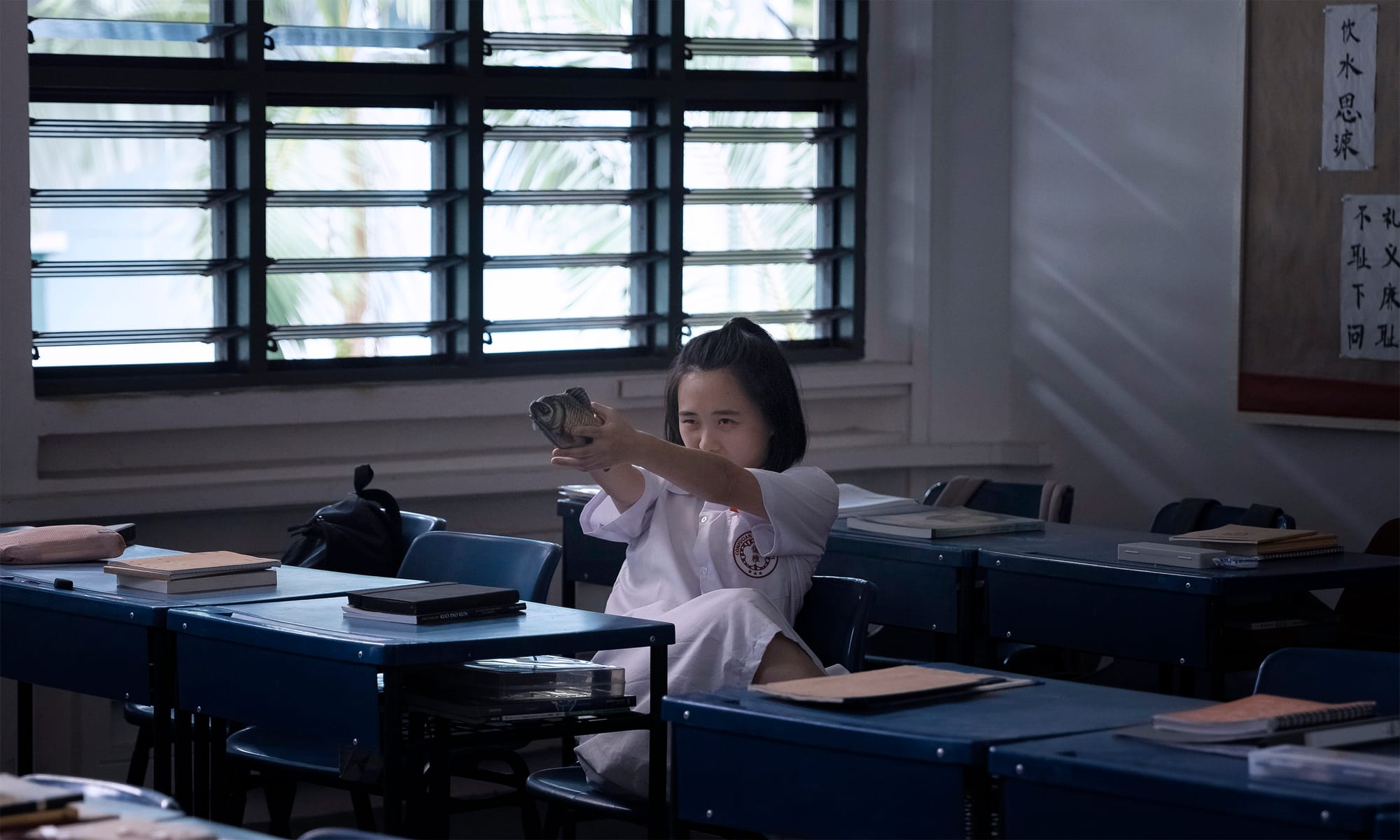Amoeba (Tan Siyou, 2025)

Director Tan Siyou’s debut film Amoeba makes a fitting companion to Yamashita Nobuhiro’s Linda Linda Linda, which I wrote about in this space a week ago. Both films concern the coming of age of young high school aged women who filter their varied teen experiences through the media of an earlier generation. In Linda Linda Linda, the inspirational art form is post-punk rock music: the expression of emotion through loud, distorted noise, an anomaly in a repressive world where people, even if they speak the same language, find it nigh impossible to communicate directly with each other. In Amoeba it is the idea of gangsterism, a counter-myth to the stories they’re taught in school about the nature and history of their native Singapore, one in which the bonds of friendship triumph over the ambitious and hyper-competitive demands of the repressively hierarchical state and family.

Ranice Tay stars as Choo Xin Yu, who has just transferred into a strictly regimented all-girls school called Confucian Girls (which would make an excellent name for either a punk band or a gang). Her anti-authoritarian stance soon earns her the friendship of a group of girls: Sofia (the rich girl), Vanessa (the jock - she’s a competitive swimmer), and Gina (the funny one). The four of them bond over their disillusionment with the school system, itself a microcosm of both the family Singapore’s authoritarian capitalist society. They flout the rules by hanging around a construction site (where they uncover a secret cave that may be a World War II-era burial ground and where they meet, surrounded by candles, Dead Poets Society-style) and filming each other being goofy on Sofia’s bedazzled camcorder (the time period appears to be somewhere in the mid-2000s: the camcorder is digital, and they watch videos on the internet, but no one has a cell phone). One day, hanging around with Sofia’s driver Phoon, they learn about the gangs of earlier generations, groups of young men bonded together ostensibly to commit petty crimes but really in defiance of propriety and authority. They decide to form a gang of their own.

Pointedly, I think, they don’t learn about gangs from the movies. There are no late night sessions cramming John Woo or Johnnie To movies. Not even a surreptitious viewing of Goodbye South, Goodbye, which stars the actor who plays Phoon, Jack Kao, familiar from many a classic film in which he plays a gangster figure, most often for Hou Hsiao-hsien (think his paternal Triad figure in Millennium Mambo). Kao himself knew gangsters in his youth, and while, if I remember correctly, he never was one himself, he was certainly familiar with their mannerisms. His work with Hou Hsiao-hsien is his best, but he’s been a familiar figure all over Chinese-language film for decades (Full Alert, Time and Tide, Throw Down, The Crossing). His presence in Amoeba is significant both for his iconography and as a stamp of approval for a young director making her first feature. But the reference is, like everything else in the film, repressed—it’s something you get only if you recognize Jack Kao, Tan doesn’t underline the meta-casting at all. Rather than learn about gangs through their cinematic reputations, the girls instead find a music video with a bunch of boys (apparently a gang?) singing about themselves. The idea of gangsterism is so anathema to Singaporean society that it can only be experienced not as the thing itself, nor the filmic representation of the thing, but only as a song aping the language of movies that in turn only represent an idea of the actual thing.

In this vein as well Tan ably adapts the art house styles of East Asian cinema. Her rectilinear compositions and focus on the architecture of Singapore, its skyscrapers dividing space into neat lines built atop amorphous underground cave formations recall Edward Yang and Apichatpong Weerasethakul, and the latter is evoked in the film’s evocation of the supernatural in Choo’s belief that her bedroom is haunted. That too, in this almost too tightly constricted film, turns out to be a part of the central argument, that Singapore’s repression of its own history, and its oppression of its own people, is reflected in the repression and oppression of these teen girls. This metaphor extends outward even to the film itself, as there are some things that even Tan cannot state outright, but rather must strongly imply: namely, the sexuality of her main characters and the nature of their friendships. As with recognizing Jack Kao, the fact that at least some of these are girls in love with each other is pretty obvious (it explains the way the school and their parents freak out when their videos are discovered a lot better than the stated reason, inciting gangsterism), but Tan never comes right out and shows it, either for the sake of plausible deniability before a censorship board, or because in this hermetically sealed film, nothing can be stated outright. We leave the movie just as desperate as the characters are for their freedom to simply be themselves, whoever they are.
